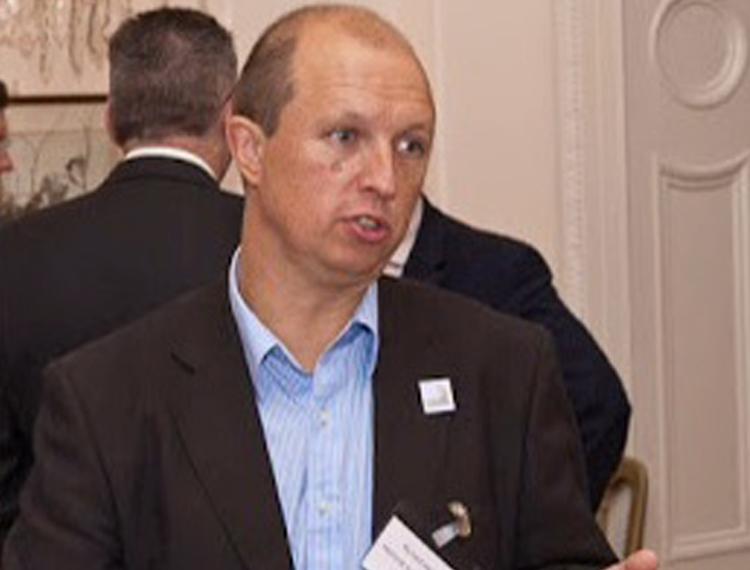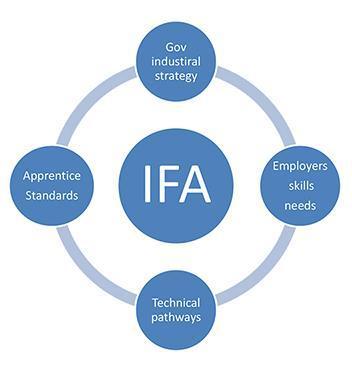Institute for Apprenticeship pre-launch. A Quango cometh?

This week we have all been invited to comment upon the draft strategic guidance for the new Institute for Apprenticeships. This is a very government way of proudly showing off a new born quango and of ensuring they do what they are told.
Where does the IFA sit and what will it do?
It is a new body blessed with an interesting collection of existing responsibilities:
Strategic responsibilities that were held in turn by SSDA-UKCES-BIS
How many occupations/standards should there be / do we need?
Funding (pricing) responsibilities that were held by SFA/BIS/DFE
How much is each Apprenticeship worth to UK plc and the
Quality (strategy) role once held by NAS
How we get 20% off the job delivery (50 days+ training)- from a £2k standard?…etc
Overall though I think that the IFA is intended to create a smoother channel between Industry & Education using Apprenticeships as the connector.
In England we may well end up with 500 Apprenticeship standards (plus a few stubborn Frameworks that refuse to die)
These will then have to be related to 18 Technical pathways that in turn feed skilled labour into an undefined number of core industrial sectors.

Will it work?
I hope so and maybe it will.
And as we haven’t had a new FE quango for quite a while, (what no more bonfires?) … we should bestow the new-born with gifts, such as ‘wisdom, fairness & longevity’
Wisdom
Maybe the IFAs major advantage could be that it has no money.
Trailblazers have been ‘bottom’ up initiatives based on employers finding common solutions to common skills problems – brilliantly addressing our social partnership deficit. No one has been paid to do this.
In the recent past, we (taxpayers) have spent something like;
- £100m via National Skills Academies to create technical training paths and partnerships in the key industries. Then,
- £50m on the SASE frameworks (inc £25m ‘higher’ fund) to create Apprenticeship Frameworks in the key industries. Followed by,
- £300m on Employer Ownership pilots (in key industries of course).
(When I was at the LSC we never knew if someone had a good idea for unlocking talent or just a good idea for accessing funding – usually the money).
None of the above seem to be very relevant to, or linked to the IFA remit at present. But hopefully the above initiatives will be built on and not ignored; surely the tax payer can expect nothing less..
Fairness
For the IFA – every penny they award to one industry will have to come from another – ie to give Roofing an extra £100 per apprentice £100 will have to be taken from each Flooring apprenticeship ….
And the overall budget will be set by the Economy, at 0.5% of payroll.
Thus it will be hard for IFA to make pricing changes, as decisions have already been made on the first ‘caps’ with STEM already prioritised. As there is still no underlying or empirical methodology for pricing standards or pricing methodology to work to (ie we are not using GLH or real costs but a mix of quotes and common sense ) it will be hard to support any requests for a higher cap in one area without upsetting another. This is the area where the backing core sectors of an Industrial strategy will come into play and they will need to be brave.
In my mind IFA will be a bit like the ‘NICE’ is for the NHS – but for FE, deciding which skills medicines the country needs and how much we should pay for them….
Longevity
As the NAO might ask how will we know it has worked?
Economists might try and construct a model for measuring the impact of the IFA but in an age where recent Education Secretaries proclaim that we have ‘had enough of experts’ I think the true test will be how long it is before the next big Apprenticeship reform and how long the IFA itself lasts
If a quango makes it to 10 – then it is considered to have been a success and have lived a long and productive life.
Conclusion
So the IFA will be part policeman, ‘preventing unscrupulous behaviour’ and part watchdog – deciding what is and isn’t an apprenticeship – and part judge, balancing funding between competing sector interests and government priorities…a tough job.
If it takes a village to raise a child, then maybe it takes a whole sector to raise a Quango – so why not log on and give them some early words of encouragement and advice…. they might well need it.
Richard Marsh, Apprenticeship Partnership Director, Kaplan UK












Responses